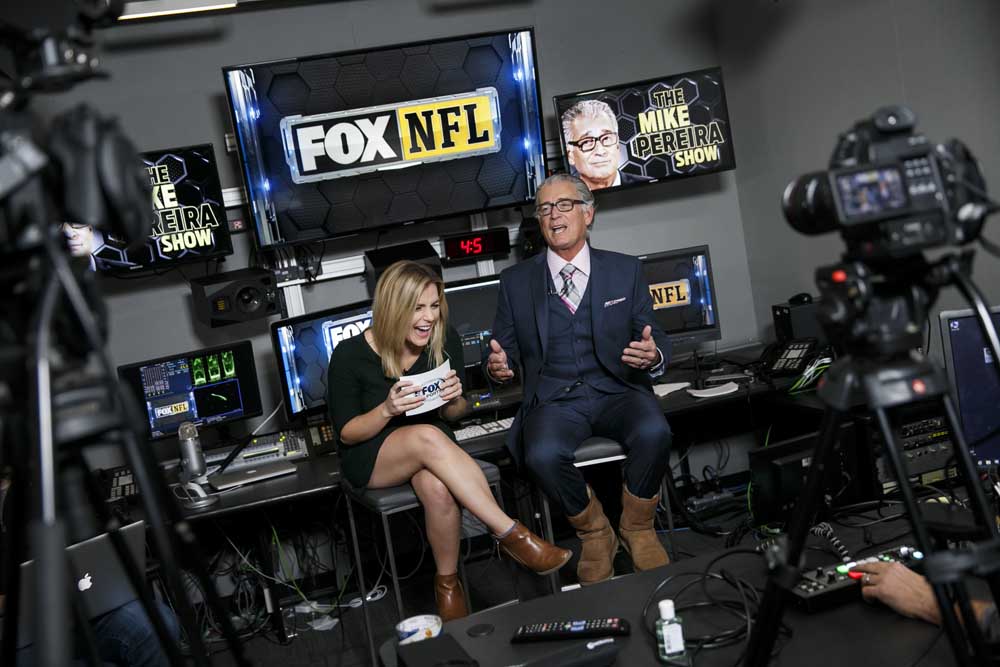AT&T, Dish and Fox squeeze NFL, NCAA football fans
Published 12:00 am Saturday, September 28, 2019

- Mike Pereira does his Facebook live show at Fox studios in Los Angeles in 2016. (Marcus Yam/Los Angeles Times/TNS)
FORT LAUDERDALE, Fla. — Sorry, NFL and college football fans.
You’ve become pawns in a growing number of contract disputes between broadcast TV station owners and major pay TV providers AT&T and Dish Network.
In the latest example, Fox affiliate WPEC-Ch. 12 was poised to disappear from DirecTV and U-verse on Friday if AT&T failed to work out a long-term deal with station owner Sinclair Broadcast Group over how much money AT&T must pay to retransmit Sinclair’s broadcast signals.
That would deprive AT&T subscribers access to the weekend’s slate of college and NFL games.
As in other such disputes, each company blames the other.
AT&T, Sinclair said in a news release, “has harmed consumers using blackouts as a negotiating ploy during several recent negotiations with stations owned by other broadcasters.”
AT&T responded that “Sinclair alone controls whether or not its stations remain available on any provider’s lineup,” adding, “And here, yet again, Sinclair has chosen to take its negotiations public, putting our customers in the middle so it can demand ever increasing and unjustified fees.”
Nationwide, an outage would deprive subscribers in 86 television markets access to 136 Sinclair-owned channels, which include affiliates of Fox, NBC and CBS, which all broadcast NFL and college football games each weekend, plus Disney-owned ABC, which broadcasts college games.
Both companies have reminded viewers that most can receive the Sinclair channels by connecting over-the-air antennas to their TVs.
The 16 Fox-owned broadcasting channels and the sports networks also went dark on Dish-owned Sling TV.
Pay TV systems don’t reveal how many subscribers they have in local markets. Nationwide, AT&T remains the nation’s largest pay 12 provider, with 22.9 million subscribers, while rival Dish and Sling has 12 million. Comcast, which has remained largely out of recent carriage fee disputes, reported 20.6 million subscribers.
So far in 2019, programming fee disputes have resulted in 276 blackouts — up from 65 in 2018 and 104 in 2016, according to the American Television Alliance, a lobbying group for cable and satellite providers.
The decision-makers in these disputes make no secret of the fact that blackouts and threats of blackouts are timed to exert maximum outrage from inconvenienced football fans.
Meanwhile, factions waging frequent blackout battles show no sign they intend to start leaving their customers out of them.
The pay services are urging consumers to support a U.S. House bill that would ban local station blackouts for 60 days after contracts expire and allow the FCC to force parties to seek agreement through binding arbitration.






